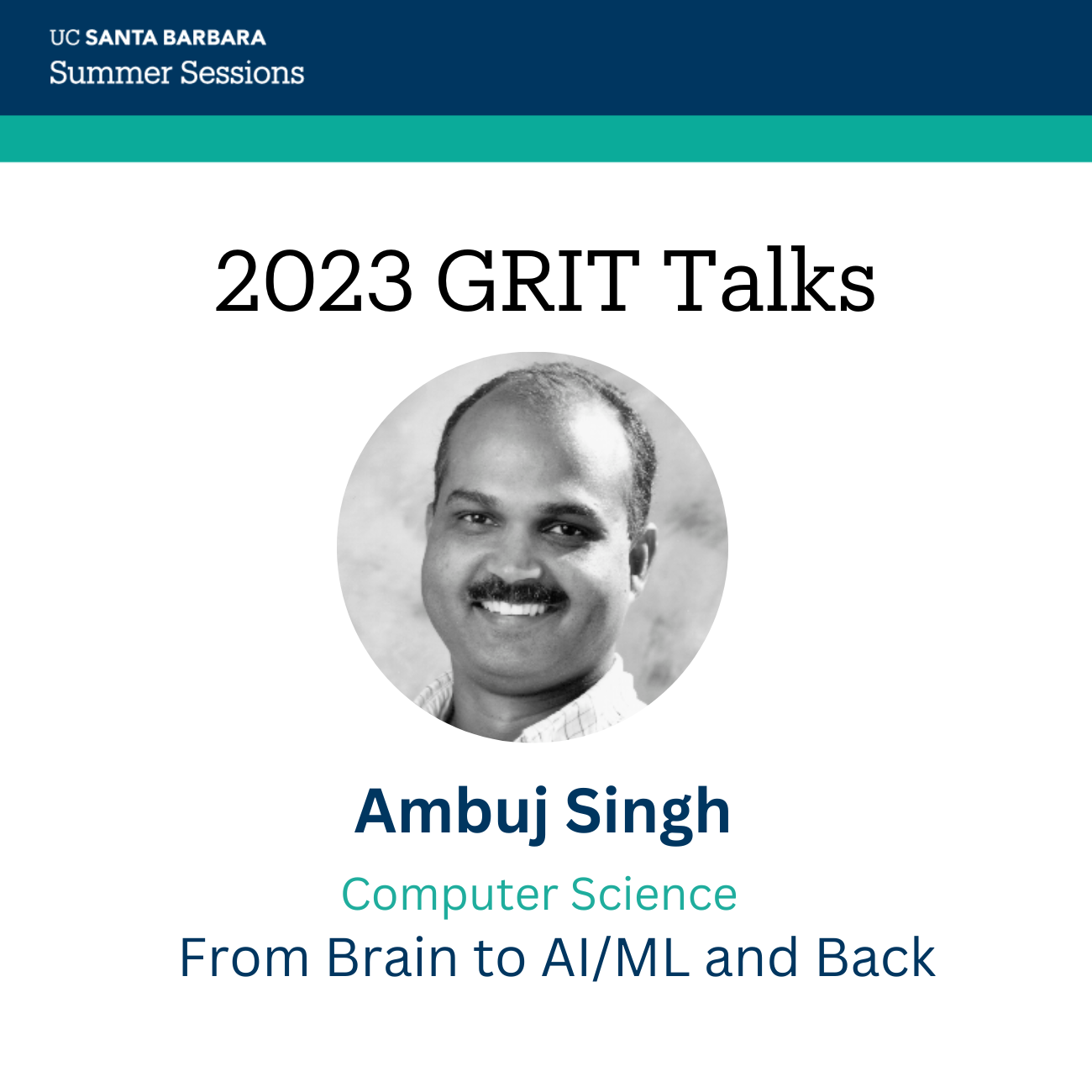
Location: Interactive Learning Pavillion (ILP) 1203
Talk Description:
Artificial intelligence and machine learning (AI/ML) have been extremely successful in predicting, optimizing, and controlling the behavior of complex interacting systems. Robustness and explainability of existing AI/ML methods, however, remain big challenges, and clearly new approaches are needed. The human brain motivated the early development of the field of deep learning and neuroscientific concepts have contributed to the profound success of deep learning algorithms across many areas. The next leap in AI/ML may again come from a deeper understanding of modularity, robustness, and adaptability of brain architectures. Some of the challenges along this goal are to analyze and integrate heterogeneous brain signals across modalities, tasks, and subjects; decipher brain organizational structures; engineer novel deep learning architectures; and apply the insights into platforms that can effectively interact, support, and collaborate with humans. In this talk I will discuss some recent methods that integrate multimodal brain data to infer brain subnetworks, understand heterogeneity, learn representations of dynamic brain signals, and reconstruct complex high-fidelity imagery from input brain signals.
Speaker Bio:
Ambuj K. Singh is a Distinguished Professor of Computer Science at the University of California, Santa Barbara, with a part-time appointment in the Biomolecular Science and Engineering Program. He received a B.Tech. degree from the Indian Institute of Technology, Kharagpur, and a PhD degree from the University of Texas at Austin. His research interests are broadly in the areas of network science, machine learning, social networks, and bioinformatics. He has published 250 technical papers over his career. He has led several multidisciplinary projects including UCSB’s Information Network Academic Research Center funded by the Army, Interdisciplinary Graduate Education Research and Training (IGERT) program on Network Science funded by the NSF, and the Multidisciplinary University Research Initiative (MURI) on Network Science of Teams funded by the US Army. He has worked with over 50 graduate and postdoctoral students over his career, including over 30 PhD students.
GRIT Talks:
"Ground-breaking Research/Innovative Technology," or GRIT Talks, is a UC Santa Barbara lecture series featuring a lineup of esteemed faculty. These 28 minute talks, followed by a 30 minute Q&A session, provide an insider look at innovative research happening at the university.